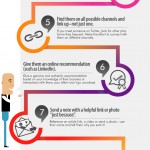Dear CMOs:
First and foremost, you have my utmost respect.
While I have never been a CMO myself, I do have a lot of real-world marketing (and advertising) experience, I was a featured writer for the CMO Network of Forbes for nearly 10 years, I have interviewed well over 2,000 leaders just like yourself, I coach and counsel CMOs and I have very close relationships with many of your peers.
So while having never served in the role per se, I know the role quite intimately. I know of the struggles and challenges you go through on a daily basis. I know all about the daily ride you go on. Boy, do I ever.
Ok, just wanted to set the table for those who I have not had the pleasure of getting to know. I like to joke that I collect CMOs like I used to collect sports cards. As a kid, my brother Greg and I spent arguably just slightly less than the GNP of Sri Lanka on football, baseball, basketball, and hockey cards.
Of course, none of said cards still exist today else my brother and I would be living in the lap of luxury in, well, Sri Lanka.
But I digress.


 Some of you know me through my work in studying how social media and
Some of you know me through my work in studying how social media and  These are exciting times, because Social Media takes “Will it Blend?” to a whole new level with marketers. And for those of us who’ve been in the business for a while—it’s about time!
These are exciting times, because Social Media takes “Will it Blend?” to a whole new level with marketers. And for those of us who’ve been in the business for a while—it’s about time! Dear Publishers and business leaders,
Dear Publishers and business leaders, Hashtags are to the social web what emoticons were to Web 1.0 and TXTing. While both are forms of expression and sentiment, there is one subtle, but vital difference. Hashtags are not only part of online culture, they are defining a new era of communication on the Web and IRL (in real life). With over 140 million Tweets flying across Twitter every day, hashtags surface a method to the madness – the ability to group conversations into an organized timeline. But what started out as a way to index conversations in Twitter has now substantially altered how people convey, relay and discover information in and out of the popular nichework. The hashtag has also become an effective form of #selfexpression.
Hashtags are to the social web what emoticons were to Web 1.0 and TXTing. While both are forms of expression and sentiment, there is one subtle, but vital difference. Hashtags are not only part of online culture, they are defining a new era of communication on the Web and IRL (in real life). With over 140 million Tweets flying across Twitter every day, hashtags surface a method to the madness – the ability to group conversations into an organized timeline. But what started out as a way to index conversations in Twitter has now substantially altered how people convey, relay and discover information in and out of the popular nichework. The hashtag has also become an effective form of #selfexpression.